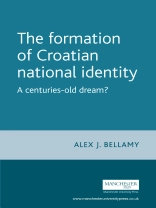This electronic version has been made available under a Creative Commons (BY-NC-ND) open access license. This book assesses the formation of Croatian national identity in the 1990s. It develops a novel framework, calling into question both primordial and modernist approaches to nationalism and national identity, before applying that framework to Croatia. In doing so, the book provides a new way of thinking about how national identity is formed and why it is so important. An explanation is given of how Croatian national identity was formed in the abstract, via a historical narrative that traces centuries of yearning for a national state. The book shows how the government, opposition parties, dissident intellectuals and diaspora groups offered alternative accounts of this narrative in order to legitimise contemporary political programmes based on different versions of national identity. It then looks at how these debates were manifested in social activities as diverse as football, religion, economics and language. This book attempts to make an important contribution to both the way we study nationalism and national identity, and our understanding of post-Yugoslav politics and society.
Зміст
Introduction 1 National identity and the ‘great divide’ 2 Re-imagining the nation 3 The Croatian historical statehood narrative 4 Contemporary accounts of Croatian national identity 5 The nation in social practice I: economy, football and Istria 6 The nation in social practice II: language, education and the Catholic Church 7 Conclusion: competing claims to national identity Bibliography Index
Про автора
Thomas Christiansen is Lecturer at the European Institute of Public Administration in Maastricht












